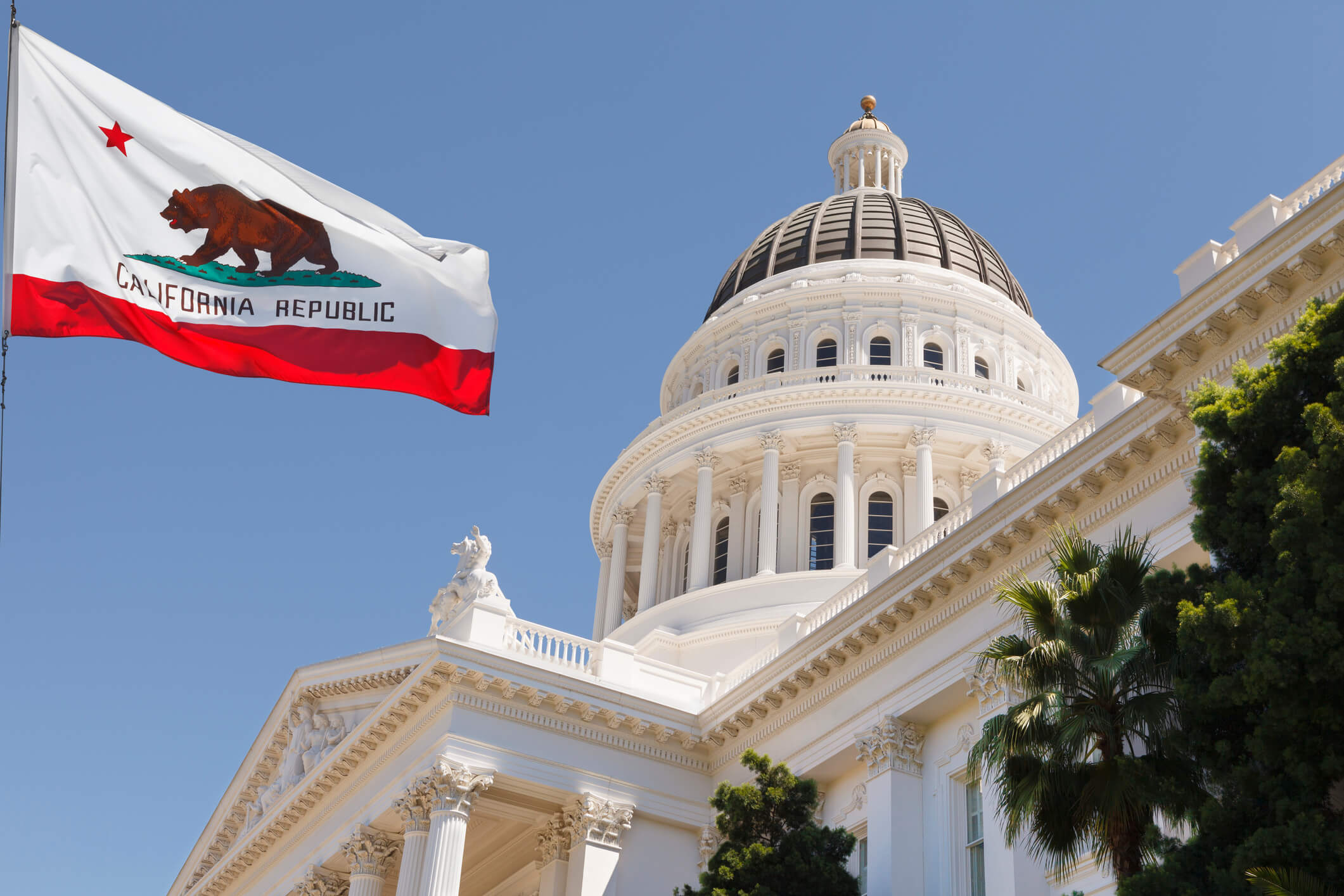Quick Hits
- Before the latest legislative session ended on September 13, 2025, California lawmakers passed several bills impacting employers, including measures to expand pay equity reporting requirements, limit workplace surveillance, and require transparency in the use of artificial intelligence (AI) or automated decision systems in the workplace.
- Governor Gavin Newsom must sign or veto bills passed during the legislative session by October 13, 2025, or they will automatically become law.
California Employment Bills Signed or Sent to the Governor for Signature
| Bill | Summary | Current Status |
| AB 250 | Window to reactivate sexual assault claims. The bill would establish a two-year window, from January 1, 2026, to December 31, 2027, to revive civil claims for sexual assault, even if the statute of limitations has expired. | Enrolled and presented to the governor on September 22, 2025 |
| AB 692 | “Stay or pay” clauses. This bill would ban employment contracts that require the worker to repay an employer, training provider, or debt collector for a debt (such as training costs), if the worker’s employment ends. | Enrolled September 15, 2025 |
| AB 858 | Post-emergency reinstatement rights. This bill would expand a COVID-era reinstatement rights law to cover employees laid off due to any state- or locally declared emergency. The bill would cover certain airport service and hospitality providers, building service providers, hotels, private clubs, and event centers. | Enrolled September 15, 2025 |
| AB 1326 | Right to wear masks. The bill would prohibit employers from preventing employees from wearing face masks, unless wearing face masks would be a safety hazard. It would give employers the right to require employees to remove their face coverings briefly at the worksite for identification purposes. | Enrolled and presented to the governor on September 16, 2025 |
| SB 7 | Disclosure of automated decision systems. This bill would require employers to provide written notice that an “automated decision system” (ADS) was in use in the workplace for the purpose of making employment-related decisions. The bill would require employers to notify employees subject to discipline or employment termination based on a decision made by ADS and give those employees the right to appeal the decision. Further, employers would be required to provide notice to job applicants if ADS will used in the hiring process. | Enrolled September 17, 2025 |
| SB 261 | Posting of Labor Commissioner awards. The bill would mandate that the Labor Commissioner’s Office post to its website any unsatisfied awards against employers. The bill would impose a penalty equal to three times the award if the award remains unsatisfied after 180 days. | Enrolled and presented to the governor on September 16, 2025 |
| SB 294 | “Workplace Know Your Rights Act.” This bill would mandate that employers post a state agency poster and thereafter provide a stand-alone written notice to each employee addressing independent contractor misclassification protections, heat illness prevention, workers’ compensation, paid sick days, protections against unfair immigration-related practices, the right to notice of federal immigration inspections, the right to organize a union in the workplace, and constitutional rights when interacting with law enforcement at the workplace. Further, the bill would require employers to notify an employee’s emergency contact in the event that the employee is arrested or detained while at work. | Enrolled September 17, 2025 |
| SB 355 | Judgment debtor employers. This bill would require, within sixty days of a final judgment against an employer requiring payment to an employee or to the state, the employer to provide documentation to the state Labor Commissioner that the judgment is fully satisfied, a certain bond has been posted, or the employer has entered into an agreement for the judgment to be paid in installments and is in compliance with that agreement. | Enrolled and presented to the governor on September 16, 2025 |
| SB 464 | Pay data reporting. The bill would require employers to store pay equity data, including demographic information related to race, ethnicity, or gender, separately from personnel records. It also would create a civil penalty for employers that fail to submit pay data reports to the California Civil Rights Department. Beginning in May 2027, public employers (currently exempt from the requirements) with one hundred or more employees would be required to submit annual pay data reports to the Civil Rights Department. | Enrolled and presented to the governor on September 22, 2025 |
| SB 513 | Maintaining personnel records. This bill would require employers to include these items in education or training records: the name of the employee, the name of the training provider, the duration and date of the training, the core competencies or skills in the training, and the resulting certification or qualification. | Enrolled and presented to the governor on September 9, 2025 |
| SB 590 | Expanding paid family leave. This bill would expand eligibility for benefits under the state’s paid family leave program to include individuals who take time off work to care for seriously ill designated persons. The bill defines “designated person” to mean “any care recipient related by blood or whose association with the individual is the equivalent of a family relationship.” | Enrolled and presented to the governor on September 22, 2025 |
| SB 642 | Pay equity. The bill would set the state statute of limitations for civil actions brought under Section 1197.5 of the California Labor Code at three years after the last discriminatory pay act occurred and expand the look-back period for relief to ten years. The bill would clarify that “pay scale,” for the purposes of job-posting disclosures, means “the salary or hourly wage range that the employer reasonably expects to pay for the position upon hire.” | Enrolled and presented to the governor on September 17, 2025 |
| SB 648 | Tip theft. The legislation authorizes the Labor Commissioner to investigate and issue citations or file civil lawsuits for gratuities taken or withheld in violation of the California Labor Code. | Signed into law by the governor on July 30, 2025. |
| SB 809 | Reimbursement of work expenses. The bill would require employers to reimburse employees for the use, upkeep, and depreciation of a truck, tractor, trailer, or other commercial vehicle the employee owned and used for work. | Enrolled September 18, 2025 |
“Enrolled” refers to when the final version of a bill has been approved by both the Senate and the Assembly, proofread for accuracy, and certified by the legislative officers before being sent to the governor for approval or veto.
Ogletree Deakins’ California offices will continue to monitor developments and will provide updates on the California blog as additional information becomes available.
In addition, the Ogletree Deakins Client Portal tracks developments and provides real-time updates on California employment laws. (Full law summaries and template policies are available for Premium-level subscribers; Snapshots and Updates are available for all registered client-users.) For more information on the Client Portal or a Client Portal subscription, please reach out to clientportal@ogletree.com.
Christopher W. Olmsted is a shareholder in Ogletree Deakins’ San Diego office.
Charles L. Thompson, IV, is a shareholder in Ogletree Deakins’ San Francisco office.
Zachary V. Zagger is senior marketing counsel in Ogletree Deakins’ New York office.
This article was co-authored by Leah J. Shepherd, who is a writer in Ogletree Deakins’ Washington, D.C., office.
Follow and Subscribe
LinkedIn | Instagram | Webinars | Podcasts
















